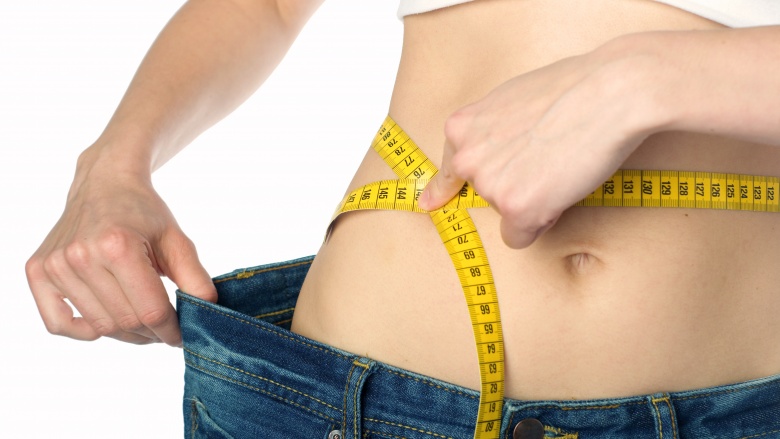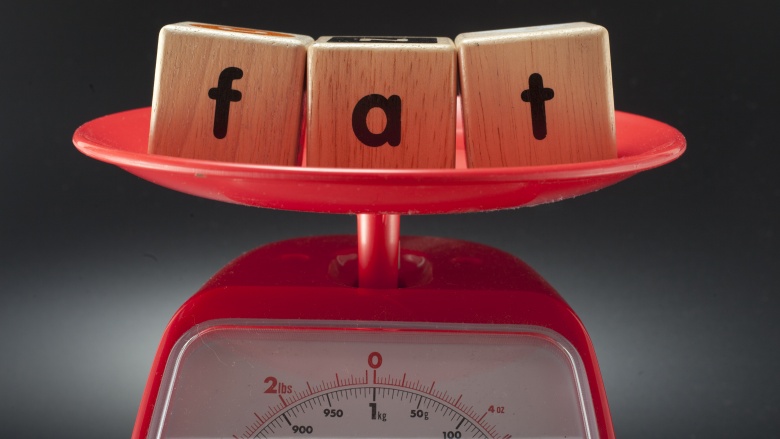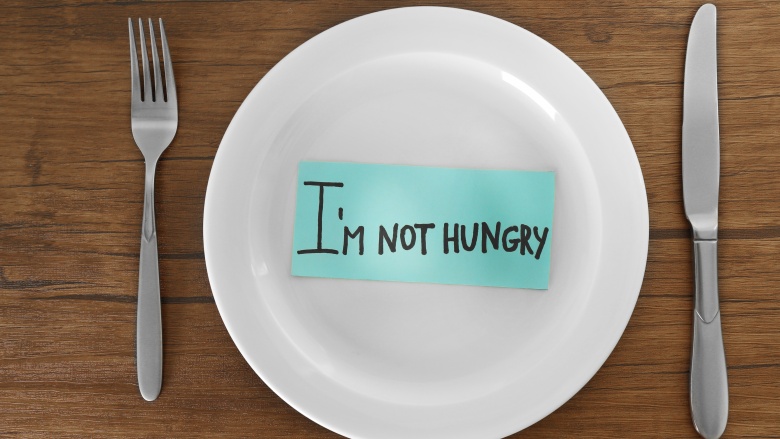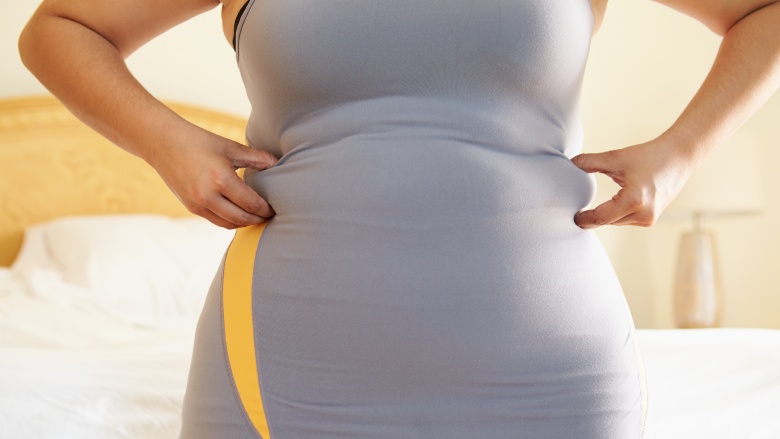What Really Happens To Your Body When You Stop Eating Carbs
Many people think that the Atkins Diet marked the beginning of the low-carb diet craze, but that's simply not true. In 1862, an obese undertaker named William Banting, tired of experiencing hearing problems, sought the advice of an ENT named Dr. Harvey. Harvey told Banting his problem wasn't in the ears, but rather, in the fat pressing on his inner ear.
He put Banting on a diet of meat, vegetables, wine and fish only — no starch or sugar (except for the wine). Banting lost weight, and his hearing problem disappeared. Over the years, many studies and many low-carb diets were tested. In most cases, subjects lost weight. That could be why, today, low-carb, high fat diets are still a thing. But are they safe? What happens to your body when you deprive it of carbs?
You do lose weight
Critics of the low-carb diet will say most of the weight lost is water weight. They're right. But, as former endurance athlete and Olympian Mark Sisson points out, that might not be such a bad thing. He says, "Retained water can amount to 10, 20 or more pounds depending on how large the person is." Since diets high in sodium and insulin-promoters (like refined carbs) force the body to store water inside and in between cells, the body doesn't really need it. So, when you cut out carbs, your body gets rid of it, resulting in weight loss.
Keep in mind, however, that Sisson promotes the Primal Diet, one that encourages people to eat enough carbs to provide enough glucose for brain function and some anaerobic exercise. His point? Depending on how active you are, you may need to consume more carbs. A caveat here – no self-respecting nutritionist or dietitian (or former endurance athlete/nutrition guru) will tell you it's OK to eat refined carbohydrates. When these diets tell you to limit carbs, they mean all carbs – including those that come from vegetables and whole grains. So it's important to think about that when you look at what other changes occur in your body when you stop eating carbs.
You burn fat
Low-carb diets do help the body burn fat, which is definitely something you want in a diet. Lori Shemek, PhD and best-selling author, says "Healthy fat turns on genes involved in fat-burning, while turning off genes that promote fat storage."
Abel James, fitness and nutrition coach, author and host, explains that severely limiting or cutting out carbs completely puts the body into a state of ketosis. In ketosis, small fragments of carbon called ketones are released into the blood because the body is burning fat, instead of carbohydrates. These ketones occur because the body is out of glucose. In a study of the long-term effects of ketosis in patients who are obese, researchers found that a 24-week ketogenic diet (that is, low-carb, high fat), resulted in not only a reduction in weight, but other health benefits as well. And, multiple studies have shown that this type of diet also helps reduce the amount of seizures people with epilepsy experience. Since the body can rely on ketones, rather than glucose, for brain function and other body energy needs, a strong case is made for low-carb diets that keep the body in a state of ketosis.
You feel less hungry
When we think of diets, we tend to think of days or weeks spent practically starving. Some experts say that a low-carb diet actually has the opposite effect. Neurologist David Perlmutter says the tie between wheat (a carb) and cravings is like addiction, and likens the chemicals in wheat and gluten to morphine. The brain responds the same way.
But other specialists argue that gluten and wheat are not the only craving producing carbs. In fact, individuals who identify as food addicts in recovery will quit eating sugar, bread, caffeine, dried fruits, bananas, corn products, and abstain from alcohol. Prominent blogger and certified eating disorder specialist Kay Sheppard outlines these restrictions in her Recovery Food Plan, citing them as trigger foods that can cause a person to overeat. It's probably no coincidence that many of the foods on Sheppard's list are also eliminated in a low-carb diet. If you're eating proteins, cruciferous vegetables, berries and fats, you're likely to eliminate cravings and feel less hungry.
Your heart disease and stroke risk may change
There are varying schools of thought on the impact of a low-carb diet and your health. PLOS One's 2014 study concluded that increasing the intake of refined carbs increases the body's production of palmitoleic acid, which is a biomarker for a host of health issues like high cholesterol, diabetes and more.
However, Emma De Fabiani, Editor at the Department of Pharmacological Sciences at Universita degli Studi Milano in Italy, argues that our understanding of palmitoleic acid is incomplete, at best, and more study is needed to determine in which "stages of the lipid scene" the acid is harmful or harmless. Other studies, however, have examined the health impact of a low-carb diet. One found that, in a 24-week ketogenic diet, the subjects experienced lower total cholesterol with a significant decrease in triglycerides and an increase in HDL levels. Those findings might lead us to believe that a low-carb diet can, indeed, help reduce your risk of heart disease and stroke.
You'll feel tired
When you first cut carbs, you may find you have a lot less energy. Your body stores carbs in the form of glycogen, which is your brain's energy source. When your body runs out of it and the ketones break free in your body, it takes you some time to adjust. In the meantime, you'll be draggy, with flu-like symptoms. Bummer, yes.
Marie Spano, dietitian, also points out that even when you've adapted to running on ketones instead of glycogen, you still might not have the endurance you did when you ate carbs. She says, "fat is a slow source of fuel. The body cannot access it quickly enough to sustain high-intensity exercise." That's fine for those of us sitting at computers and doing slow-to-moderate treadmill workouts, but endurance athletes may need to consume some carbs to keep up their high level of activity.
You'll probably have bad breath
A lot of people who follow a low-carb diet into ketosis report bad breath. Those ketones that are fueling your body at this point are released, also, through your breath. Additionally, Dr. Wayne Aldredge, President of the American Academy of Periodontology, says that during the first stage of the low-carb diet, as you lose water weight, you can develop dry mouth. That makes for stinky breath, too.
Even if the dry mouth goes away, the halitosis caused by the low-carb diet won't. Dr. Andrew Weil, celebrity doctor and alternative medicine guru, says the only way to counter this bad breath is to drink a lot of water or to chew parsley. Or, start eating carbs again. Dr. Weil, who is not a fan of low-carb diets, also cautions that halitosis that stays after reintroducing carbs to your diet, might be a signal to see a doctor. Bad breath can be a sign of GERD, diabetes, gum disease and more.
You'll get constipated
Low-carb diets can, in fact, cause constipation. You're not eating grains that contain fiber, so it's easy to get a little stopped up. Fiber doesn't only help your digestive system, incidentally. It also helps stabilize glucose levels. But if you're committed to staying on a low-carb diet, Dr. Deborah Gordon has some good tips for pepping up a sluggish digestive system.
She says low-carb dieters don't have to start eating grains again to get things working. She suggests that adequate hydration, exercise and supplements can help get you back on track. She also advises people on a ketogenic diet eat fermented greens, leafy greens and plenty of garlic and onions to add sulfur to gut bacteria.
Dr. Georgia Ede tells us that lack of fiber may not be the issue at all. Ketogenic dieters often start eating cruciferous vegetables, nuts and full-fat dairy all constipating foods.
You could gain it all back
That's the rub, isn't it? Low-carb diets help you lose weight quickly when you're following the plan, but as soon as you start eating carbs again, your body starts producing glucose again, and everything goes right back the way it was. That's not to say that it's OK to stay in ketogenesis forever — there's not a lot of scientific evidence on that, yet.
But the bottom line is, studies show that while low-carb diets yield results, attrition can be high and by the time a year is up, most people go back to the way they were. And, in other studies, sometimes people on low-carb diets don't lose any more weight than people on other types of diets.
Make an informed decision
There are some obvious benefits to low-carb diets, but there are risk factors associated with it as well. Before starting any sort of diet, it's important to weigh the risks. It's also important to talk to your doctor about any diet you're considering, since they'll have a better idea about how each one could affect you individually.









